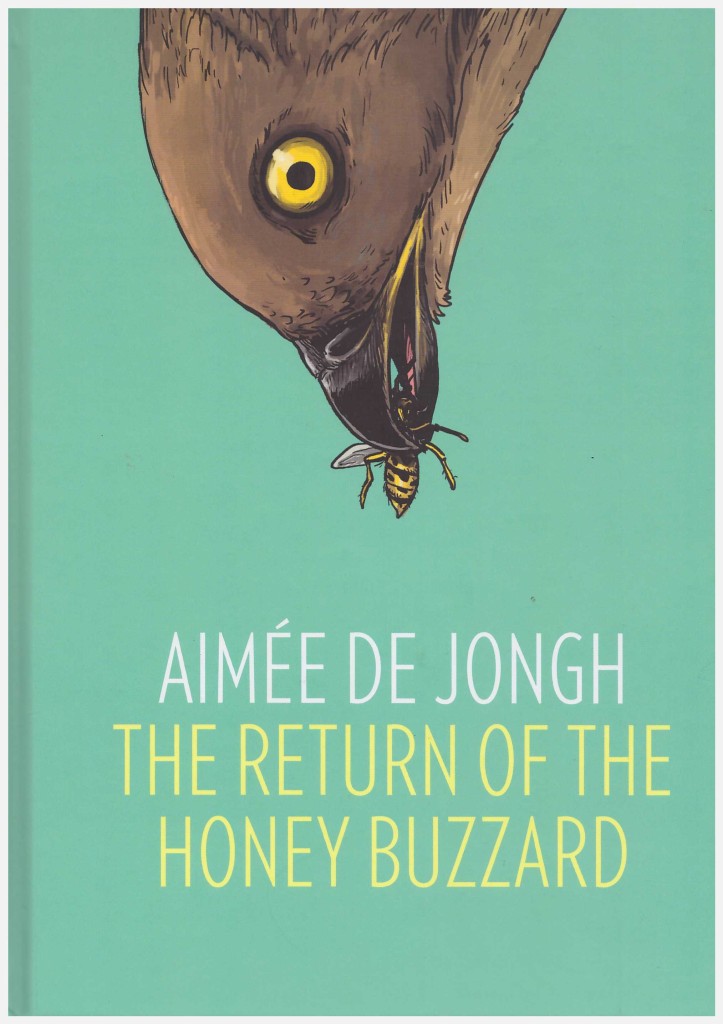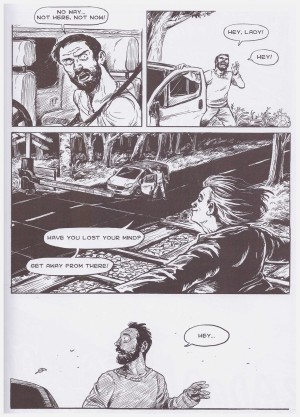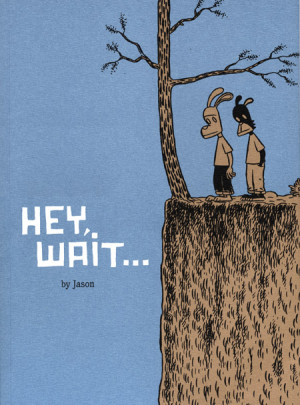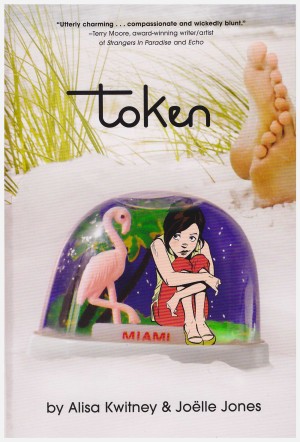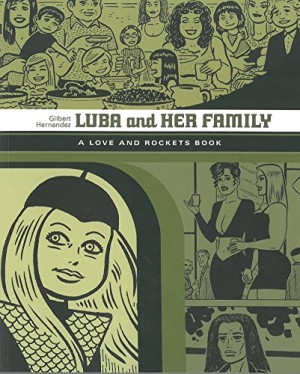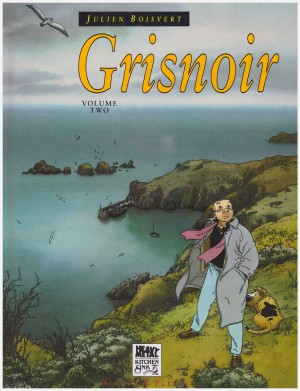Review by Ian Keogh
Simon’s not exactly going through a mid-life crisis, but he is refusing to confront reality. In order that he and his wife maintain financial security the family bookshop inherited from his father is going to have to be sold. Simon wasn’t always that connected with the shop, and when younger harboured dreams of becoming an ornithologist, in contrast to his bullied friend Ralf who’s determined to join the army. Yet when his father was dying, Simon promised to ensure the bookshop remained open. Driving home from collecting stock one night he witnesses a woman committing suicide at a level crossing, and this releases long buried memories of his teenage years.
Aimée de Jongh’s unusually sensitive graphic novel speculates about how the past informs the present on a personal level, and her writing is a subtle treat. The legacy of Simon’s teenage ornithological studies is that all these years later he retains the knowledge of certain species, including the honey buzzard of the title. In a key sequence he details their life patterns entirely oblivious, on the surface at least, to the relevance these have to his own conundrum. Part of this threads back to his youth, and part to the recent events. Why did Simon act in a certain way then, and what might he have done differently in the more recent past?
The haunted and conflicted appearance de Jongh gives Simon is a masterclass in visual characterisation. He wears his troubles on his face, yet within the boundaries established by de Jongh’s style, and never in a manner exaggerated for effect. The art is uncomplicated, open and welcoming, telling the story attractively even during the darker moments.
Mysteries of human perception and the way we cope with tragedy are explored, and de Jongh throws in allegorical references, one being the journey back to the womb represented by Simon’s trip through the woods to the shop’s stock store. More astute readers will absorb concealed elements before the final pages, as the clues are all there, but this isn’t a narrative dependent on the big reveal. That’s a consequence of a repressed sadness finally forcing its way to the surface, and the unknown psychological effects this can produce.
There is a sentimentality among the tragedy of this character study, but never to an overwhelming degree. It’s layered, clever, and compulsive reading, and remarkable for a first graphic novel, acknowledged by the award of the Prix Saint-Michel in Belgium. de Jongh will only improve, and that’s something we should all anticipate.
